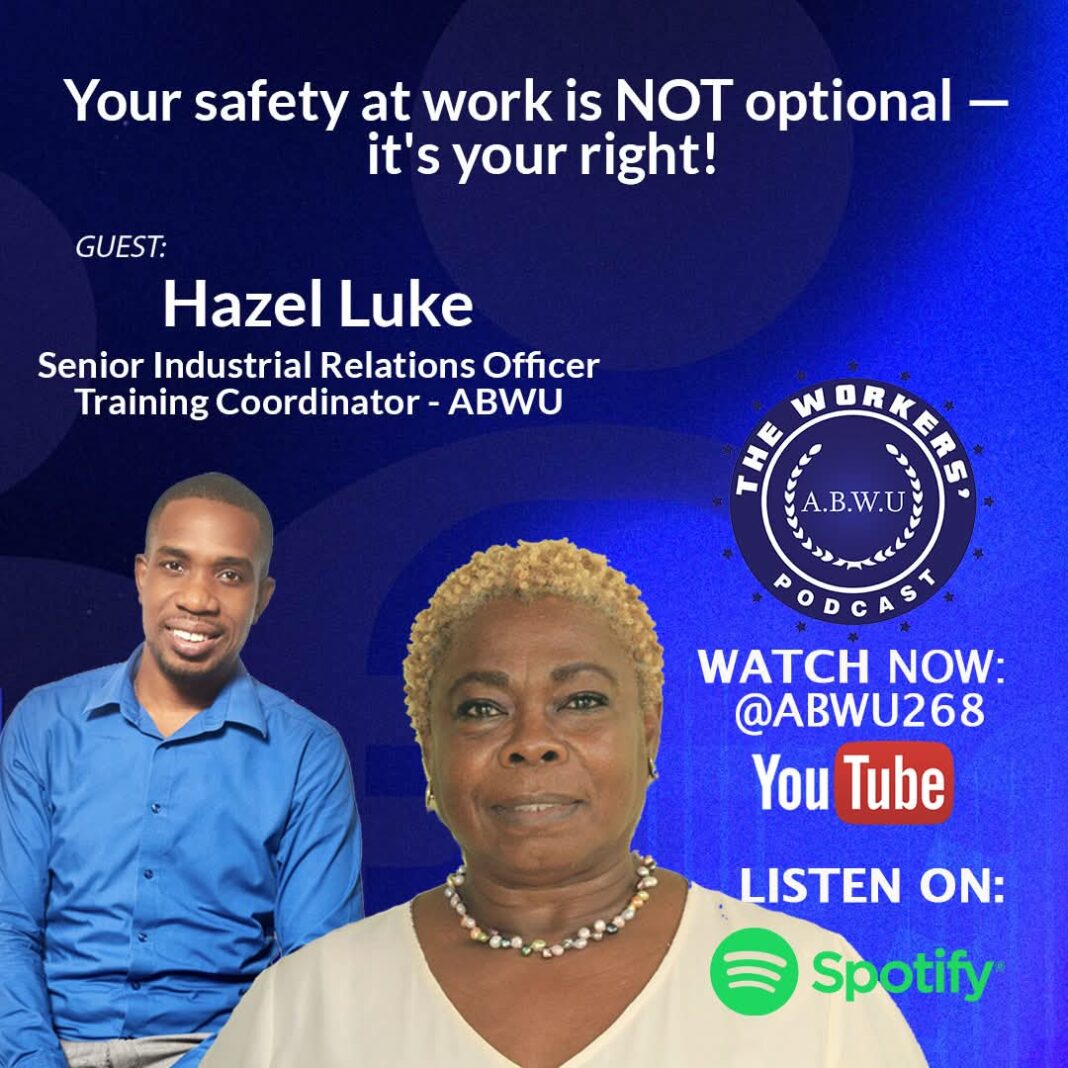Senior Industrial Relations Officer at the Antigua and Barbuda Workers Union (ABWU) Hazel Luke delivered a powerful message during a recent episode of The Workers’ Podcastwhich focused on occupational safety and health (OSH).
In a wide-ranging discussion, Luke emphasized a critical but often overlooked principle: workers in Antigua and Barbuda have the legal right to refuse work they believe to be unsafe or life-threatening, and no worker should have to choose between earning a living and staying alive.
“No employee should feel compelled to work in an environment that poses a danger to their life,” she stated firmly. “If a task or the workspace presents a real risk, be it exposure to harmful substances, untrained use of machinery, or unsafe infrastructure the law allows workers to say ‘no’.”
This right is protected under national labor laws and supported by international conventions such as ILO Convention 155, which Antigua and Barbuda has ratified. The law explicitly states that employees must not be forced to carry out duties that endanger their health or safety, and they are within their rights to refuse such tasks without fear of retribution.
Yet despite the legal framework, Luke acknowledged that many workers, especially immigrants or those fearful of job loss feel pressured to continue working in hazardous environments. She stressed that knowing one’s rights is the first step in protecting oneself.
“Whether you are Antiguan by birth or by work, the law applies to you equally. A worker is a worker,” she stated.
Luke encouraged employees to document unsafe conditions, bring concerns to management, and seek the support of a union when possible. She also called on employers to uphold their legal and moral responsibility to provide a safe workplace, warning that inadequate protective equipment, poor training, and failure to maintain safe infrastructure continue to endanger lives across multiple industries, from hospitality to construction.
“Labor is capital. Take care of your workers, and they’ll take care of your business,” she said.
The industrial relations officer advised that ABWU has stepped up its advocacy efforts to strengthen health and safety clauses in collective agreements and has launched educational campaigns and training programs to equip workers with the knowledge to protect themselves.
She also highlighted the importance of reporting injuries and keeping accurate records. Currently, the lack of verifiable data on workplace injuries in Antigua and Barbuda is a major obstacle to improving safety standards.
Situations where injury is narrowly avoided are often ignored, even though they indicate real danger.
“A near-miss means the danger is still there.You didn’t die this time but you could next time,” she warned. “We spend more time at work than we do at home. It should be a place where we feel safe, not afraid.”
For more information on workers’ rights, health and safety regulations, or to report a workplace hazard, employees are encouraged to contact the Antigua and Barbuda Workers’ Union or the Labor Department.




